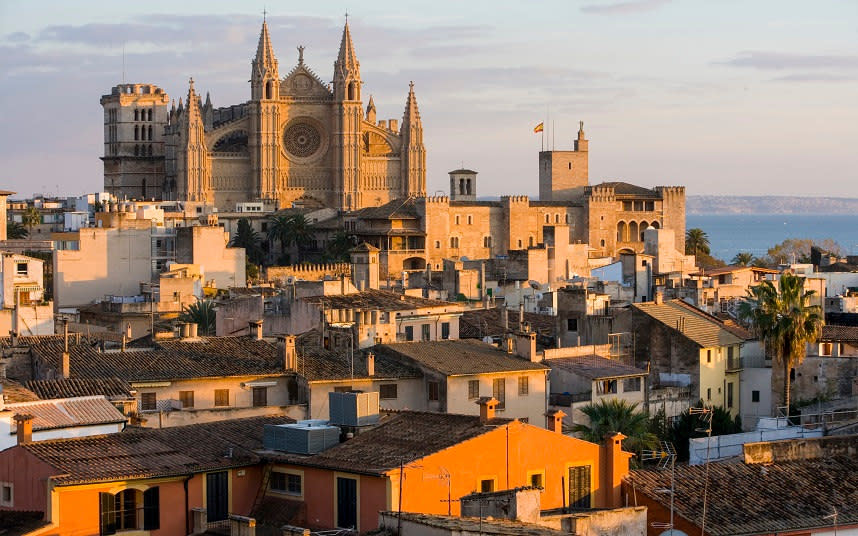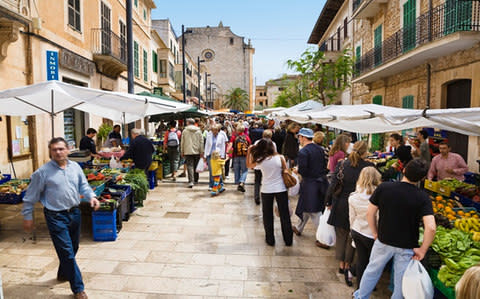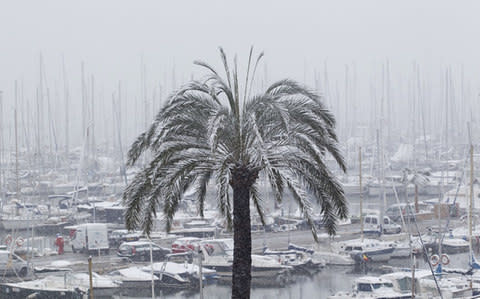What does the ban on Airbnb-style rentals in Palma mean for the Balearics?

Following the recent announcement of a ban on short-term flat rentals in Palma, Majorca, there has been much polemic about the impact the new legislation may have on future tourism – both in the Balearics and Spain as a whole.
In 2016, more than four million Britons visited the Balearics, an increase of 7.5 per cent on the previous year, some of whom will have inevitably opted for rental properties via online holiday sites.
Letting flats to tourists in the capital, particularly during the high season, has become a lucrative proposition for homeowners – both locals and foreigners – keen to cash in on the island’s growing popularity.

However, the Balearic regional government has become increasingly concerned about the lack of affordable long-term accommodation available for seasonal workers and the community in general. It has locked horns with online sites such as Airbnb for allowing homeowners to rent their properties effortlessly for short or longer periods without government intervention or approval.
It has also been suggested that Palma residents have grown weary of the vast number of domicile tourists during the summer months, as well as those from cruise ships, regularly tramping through the cramped old town and causing congestion.
All the same, aside from a few low-key and isolated incidents by activists, the majority of the islanders appear to appreciate the advantages that tourism brings: after all it represents at least 80 per cent of the economy.
The best hotels in Majorca
Bel Busquets, Balearic minister for tourism, concedes that homeowners earning an income from tourism is beneficial to the local economy but believes that controls must be put in place. “Saturation is an issue. It’s all about finding the right balance and sometimes, such as in the case with holiday rentals, it can be difficult.”
The minister would like to see a greater spread of tourism throughout the year across all the islands. “There is so much more to the Balearics which can be enjoyed in Spring and the Autumn, ” she said. In fact this year has already seen a record rise of 31 per cent more Britons visiting the islands in low season.
While a complete crackdown of apartment rental will take effect from July in Palma, the Council of Majorca will be implementing a holiday rental zoning scheme island-wide in areas that attract the greatest volume of visitors. Similarly to Palma, the holiday rental trend has seen locals in towns popular with tourists such as Soller, Pollensa, Alcudia and Andratx struggle to find long-term moderately priced lodgings.
Expert guide | Why you should visit Majorca out of season
In Soller, in the northwest, for example, the local toll tunnel fee has been lifted meaning that hundreds more vehicles are pouring into the valley, especially at weekends and during key holiday periods. So heavy is the traffic flow that only residents are being allowed to enter the centre of Soller and discussions are underway about the need to create a new car park in the environs of the town to cope with the expected influx of cars come the summer.
Owners of legally recognised, standalone houses in designated zones will be permitted to rent, while at the current time, those owning apartments without existing official licences will not be given government approval. The new rules will not apply to the other Balearic Islands, which will instigate their own forthcoming legislation.
There is though the nitty-gritty issue of illegal deals with many of those currently banned, staying below the radar and bullishly offering their flats for private rental. If detected, or denounced by neighbours, they stand the risk of incurring heavy fines – but that doesn’t act as much of a deterrent for hardened opportunists.

Time will tell whether the new initiative in Palma will act as a catalyst for change elsewhere in the country and have a negative consequence for tourism. Still, with the vast choice of established and new hotels in Majorca, as well as approved rental zones, and the upward trend for all-year round tourism in the islands, it is likely to have limited repercussions in the Balearics.